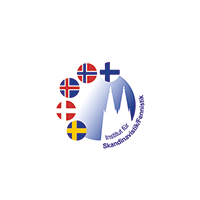Joint Learning in Northern European Studies
Study together online
How does collaborative e-learning work? How can I imagine online seminars that I attend together with students from other universities?
Studying online together with students from other universities and even students from other countries – all this may sound exciting, but it may also be a little unsettling. How do courses that are taught exclusively online actually work? What do I have to expect? How is to work online together with other students?
Digital Distance Learning and the Summer Semester 2020
In the j o l n e s project, these questions were addressed to us frequently until the probably historic summer semester 2020. Previously, digital university teaching was usually the exception rather than the rule, or primarily implemented in the form of blended learning scenarios. Webinars ever so often raised concerns on the part of the students – but no less so on the part of the teachers. Due to the COVID-19 pandemic, online teaching was suddenly omnipresent. In many places, the semester was spent exclusively in digital form.
Many questions will have been answered by 'learning by doing' after the summer of 2020. However, how exactly 'joint learning‘ works in the online courses offered by the j o l n e s project is described in detail below. Certainly, some individual questions still remain open. In such cases, please contact the project staff. We are pleased to share our experiences and also the feedback of former participants in the e-seminars and e-lectures of the project!
Joint Learning Courses in the Network Project j o l n e s
In the network project j o l n e s – Joint Learning in Northern European Studies the five German Departments of Scandinavian and Finnish Studies of the universities of Berlin, Frankfurt/Main, Freiburg, Cologne and Münster as well as the Département d'Études Scandinaves of the University of Strasbourg and the Department of Finnish Literature (Kotimainen kirjallisuus) of the University of Turku cooperate with each other. Each semester, one partner within the network produces a digitised lecture or a seminar entirely online. This can be attended by all (Master) students of the cooperating institutes. Each course is supervised and moderated. It is thereafter accredited in the 'home department'.
In the courses themselves, joint learning can take on very different forms. There is no blueprint for the course design. All depends on the course form (lecture or seminar), the course topic and the teaching material used. A few examples are given below.
In most cases, all participants meet in regular online sessions via so-called online conferencing tools such as Adobe Connect or Zoom and work together on the material, discuss and clarify questions. Introductory or impulse lectures by the course instructor can be integrated into these sessions or can be offered as videos separately in the course. Sometimes the online meetings are closely meshed, i.e. in weekly cycles. Sometimes they are offered as revision sessions after e.g. two-week or one-month lecture sequences.
These online conferencing tools can also be used for group work across national borders, together with other tools that facilitate collaborative work. For securing the results of the group work and their presentation, various digital possibilities are available outside of the classic oral presentation. These include, for example, the creation of a podcast or interactive video or even completely different learning materials. In some cases, a course instructor may ask the students to individually analyse and evaluate the material offered and to submit a short written homework online.
These are just a few examples of how collaborative study in a digital environment works within the j o l n e s network. Please contact us about further questions!
We wish you enriching discussions and lots of fun in the j o l n e s online courses!
With kind regards
The j o l n e s – staff
